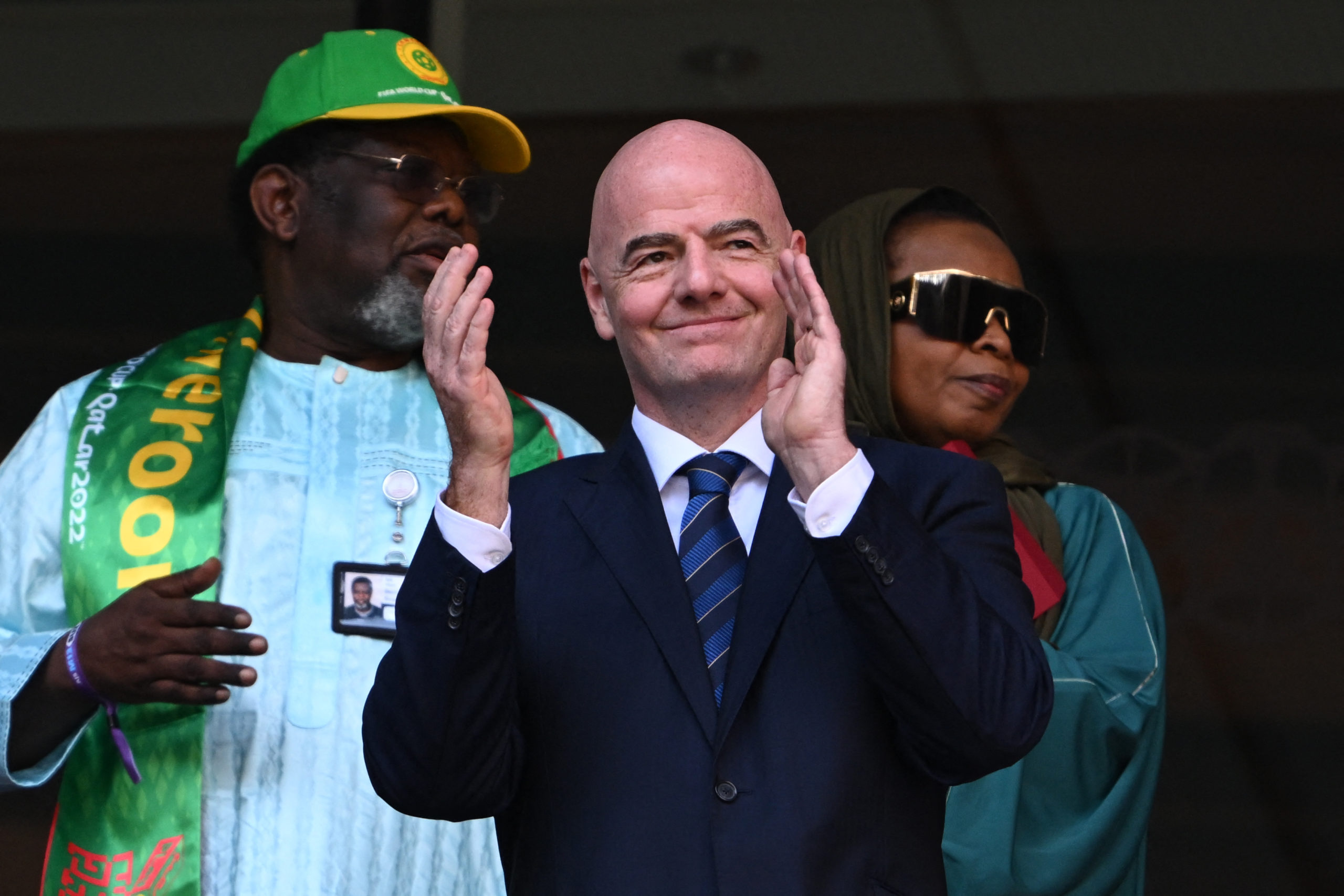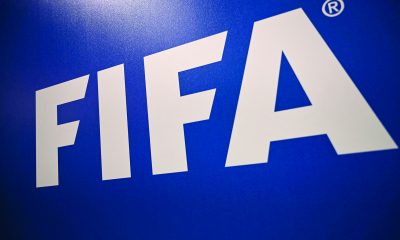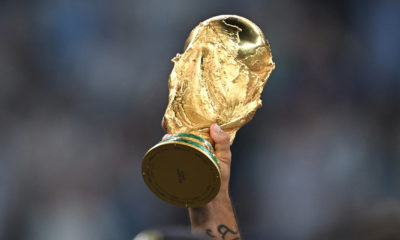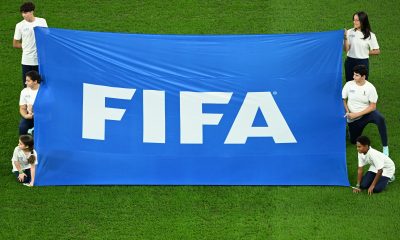
The World Cup began with a Europhobic tone.
In his speech, Fifa president Gianni Infantino attacked Europe. He accused its representatives of arrogance and double standards, self-centredness – and Eurocentrism.
He overlooked one point: the centre of football is indeed in Europe, historically, culturally, economically, and sportingly. Only in Europe is it possible to have a great career in top-level football.
Europe dominates contemporary football.
In the competition between nations, it is clearer than ever. The last time the decisive match of a World Cup was played without European participation was three-quarters of a century ago.
The last four world champions are Italy, Spain, Germany and France, and three of their four opponents in the final came from Europe. In 2006 and 2018, the semi-finalists were all European.
The dominance in club football is even clearer.
Everything aspires to Europe, to the five big leagues, this trend has intensified since the creation of the Champions League in 1992.
The last world-class footballers to mature outside Europe were Pelé and Zico. Diego Maradona spent his best years in Spain and Italy, Lionel Messi went to Barcelona as a child, and Neymar at 21.
From the starting eleven of the last non-European world champions, Brazil 2002, only one never played in Europe during his lifetime: Marcos, the goalkeeper.
Talent is evenly distributed across the globe, South America trains many great footballers, Africa has great players. But they always take the final step in a European league.
The last world champion teams where this was different were Brazil and Argentina in the seventies.
Now Brazil, Argentina and Uruguay consist almost exclusively of footballers who are employed in the Premier League, Bundesliga, La Liga, Ligue 1 or Serie A.
Teams with a different profile have virtually no chance of reaching the semi-finals. Not to mention the World Cup title.
An art product like Qatar had to fail against the team of Ecuador because for them, the England-steeled Enner Valencia is the striker.
The first impression of this World Cup is that Europe will give Infantino answers on the pitch.
England revealed weaknesses in defence, but scored six goals against Iran.
Holland, three-time World Cup finalists, defeated African champions Senegal.
For the French, Australia will not have been the last opponent to whom they are superior in all positions.
From the very first minute, the Spanish team once again displayed the clear style that sets them apart from all their opponents: attacking possession. The 7-0 win against Costa Rica was an uneven duel.
Belgium, Denmark, Poland, Wales and Croatia also present themselves well organised. Europe’s players perform, thanks to them the tournament is attractive.
Italy, the European champions, are not even in the tournament, nor are the former World Cup finalists Sweden and Hungary, nor are the Czech Republic and Slovakia, who, when they formed one country, were in the final twice.
Erling Haaland, possibly one of the defining strikers of the next decade, is absent in Qatar because the European competition was too strong for Norway in the qualifiers. If World Cup places were only awarded according to sporting criteria, Europe would have more than 13 of the 32 participants.
Only Germany was off the mark, leading 1-0 against Japan, then Hansi Flick took away their stability by substituting three players from Bayern Munich, one each from Chelsea and Man. City, and replacing them with Champions League inexperienced players.
Germany also beat themselves because two professionals from the Bundesliga scored the goals that handed Japan the victory.
Otherwise, Europe’s teams are usually assertive when the world meets in Qatar.
In this way, they provide the sports politicians with a template to follow.
If they have to face one reproach, it is that they have betrayed the values for which the continent of enlightenment stands.
For many years, their focus was on high individual profits and not on the responsibility that football has to assume in society.
What has happened to FIFA, a European institution based in Zurich, which was once founded out of a desire for international solidarity by Sweden, Belgium, France, the Netherlands, Denmark and Switzerland?
Football needs new representatives to deal with its credibility crisis. They can go back to its origins. A century and a half ago, it began its global triumphal march in England, Scotland, Switzerland, soon followed by Spain and Germany.
It was so successful because it was part of the labour movement and democratisation. It made social advancement possible and required fair play. It was given life in the club culture.
To this day, these roots are the strength of football. Now the task is to defend these achievements. For Europe, it is a matter of self-preservation. Cooperation is needed, football is a team sport.
The first steps have been taken. The fact that the awarding of the World Cup 12 years ago was wrong seems to be perpetuated as an attitude.
In Qatar, some European associations wanted to join forces to send a signal for diversity with a colourful captain’s armband. However, it was very naïve to rely on FIFA’s leniency in doing so.
In the power struggle with Infantino, a Swiss of Italian origin, Europe is lagging behind.
The teams are now giving up the armband, but that cannot be the last word.
Supported by the strong performances of the players, UEFA’s associations must now fight back, in unity, of course, with allies from other continents.
We must save the values of football and what this game expresses.
It is a European game.

World Cup News
-
FIFA World Cup
/ 10 hours agoSaudi oil giant Aramco agrees major FIFA sponsorship deal
Saudi Arabia’s state oil giant Aramco and world football governing body FIFA on Thursday...
By AFP -
FIFA World Cup
/ 1 month agoSon scores but Thailand hold South Korea in World Cup qualifier
Son Heung-min scored but South Korea were held 1-1 at home by Thailand in...
By AFP -
FIFA World Cup
/ 2 months agoJapan-N. Korea World Cup game to stay in Pyongyang, JFA says
Japan’s World Cup qualifier against North Korea will be played in Pyongyang as planned...
By AFP -
FIFA World Cup
/ 2 months agoGerman ex-FA bosses on trial over World Cup tax evasion
Three German ex-top football officials went on trial on Monday in a 13.7-million-euro ($14.8...
By AFP

American Football
Bears draft USC quarterback Williams with No. 1 pick

Winter Olympics
Watch: Geisenberger wins sixth Olympic medal to tie luge record





























